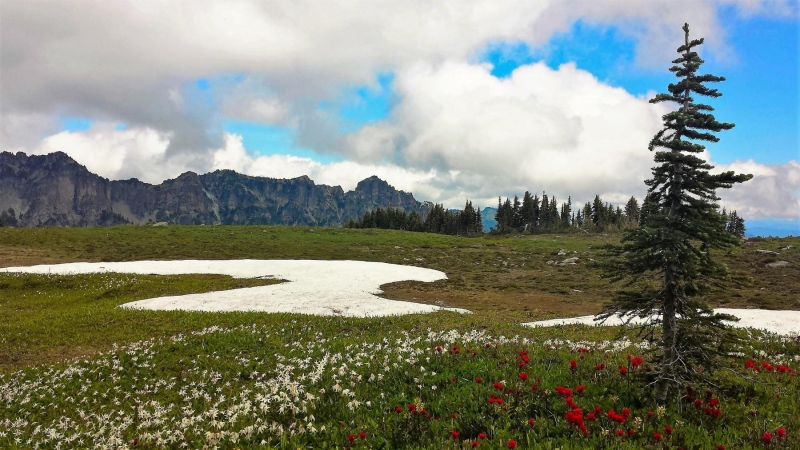You are here
Janneke-Hille Ris Lambers

Research in my lab is motivated by basic and applied questions in plant community ecology. Research questions include: i) forecasting the impacts of climate change on species distributions, population dynamics, phenology and community structure; and ii) the processes that drive species coexistence. Our research is generally motivated by ecological theory, and we approach questions of interest with observational studies, manipulative experiments, and statistical modeling. The lab conducts a lot of its studies at Mt. Rainier National Park, a great 'natural laboratory' for climate change research.

I received my Ph.D. from Duke University in 2001 (working with James S. Clark). While at Duke, my field work took me to the Coweeta Hydrologic Laboratory in western North Carolina (an LTER site), where I studied differences among temperate tree species in seed dispersal, seed banking and density-dependent mortality, and how those differences contribute to diversity-maintenance. I then worked with David Tilman at the Cedar Creek Ecosystem Reserve (another LTER site associated with University of Minnesota). There, I studied how declining diversity and species identity influences productivity and the impacts of global change on seed production. In a subsequent postdoc at University of California, Santa Barbara (working with Jonathan Levine), I focused on the factors that allowed Mediterranean annual grasses to dominate over the diverse California annual grasses and forbs as well as the contributions of niche and neutral processes to the coexistence of Serpentine annuals. I arrived at University of Washington in 2006, received tenure in 2010, and became a full professor in 2014. In 2020, I moved to ETH Zurich where I am the Professor of Plant Ecology. I am still an affiliate professor in the Department of Biology, and continue my work at Mt. Rainier National Park, including MeadoWatch (a community science program) in collaboration with Berry Brosi.
